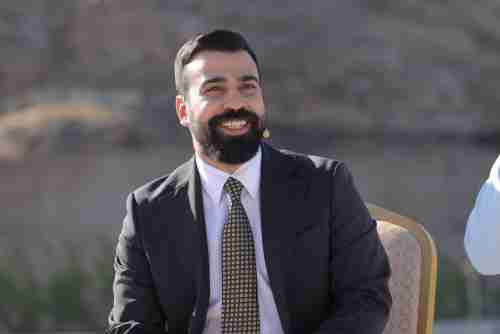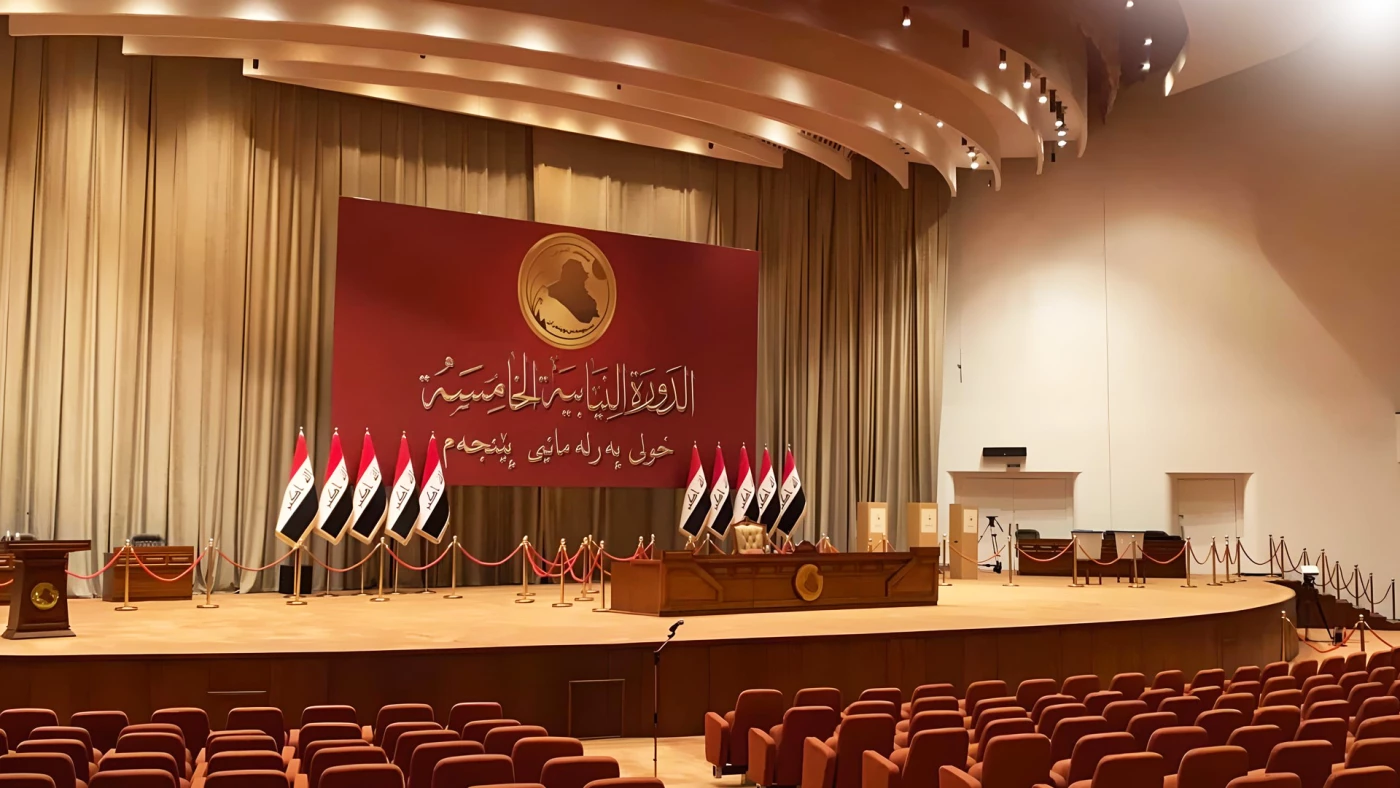Ten months after the Iraqi parliamentary speaker position was left vacant, Sunni parties keep shifting from one candidate to another with the fate of the position, held by Sunnis since the establishment of post-Saddam Iraq, remaining unclear.
In a tweet early Wednesday, Mahmood al-Mashhadani, a candidate in the last round of votes to elect a new speaker, announced that he had been entrusted by two Sunni parties to remain a candidate for the position.
“I appreciate the position and efforts of Azm and Sovereignty blocs in supporting my candidacy for the parliamentary speaker position,” Mashhadani said.
The tweet came as a surprise to many who had kept tab on the last parliamentary session dedicated to electing a speaker.
The parliament last discussed the matter in May, where Mashhadani was competing against Salem al-Issawi, a candidate backed by part of the Shiite Coordination Framework as well as several Sunni parties except Taqaddum.
Mashhadani was at the time backed by Taqaddum, the party led by former parliamentary speaker Mohammed al-Halbousi.
But a lot has changed since May.
Halbousi on Wednesday gathered Sunni MPs at his residence, after which a statement from Taqqadum and the rest of the MPs said that they were in favor of nominating a completely new candidate for the position, a clear indication that Mashhadani was no longer their candidate of choice.
Mashhadani’s tweet in return showed that he was now backed by Halbousi’s Sunni rivals, especially Sovereignty’s Khamis al-Khanjar, who has had a rocky relationship with the past speaker.
Azm and Sovereignty’s stance is in line with that of the Coordination Framework, who reject a re-opening of the nomination period and want to stick with the candidates that have already been approved to run for the position.
Though both Azm and Sovereignty seem to have thrown Issawi under the bus in favor of the previously Taqaddum candidate.
The last time the parliament addressed the matter in May, the session witnessed a large attendance, when 311 of the parliament’s 329 members were in attendance and casted their votes.
However, after two rounds of voting, no candidate was able to achieve the 167 votes required to be elected as speaker to the parliament, the voting had to enter a third round.
However, as the third round of voting was about to commence, a brawl broke out between several MPs, putting a session to an end.
Acting speaker Muhsin al-Mandalawi at the time said that no speaker will be elected unless a consensus is reached between all political blocs.
The Iraqi parliament has not had a speaker since November when the Federal Supreme Court revoked Halbousi’s parliamentary membership, charging him with forging another MP’s resignation.
Despite several attempts, the parliament time and again failed to elect a new speaker, with Halbousi’s Taqaddum and the Shiite Coordination Framework not agreeing on a candidate.
Despite Taqaddum holding the majority of Sunni seats in the parliament, therefore having a rightful claim to the speaker position as per the power sharing system established in Iraq following 2003, the party has faced obstacles from the Coordination Framework who has taken control over the position through Mandalawi since November.



 Facebook
Facebook
 LinkedIn
LinkedIn
 Telegram
Telegram
 X
X


